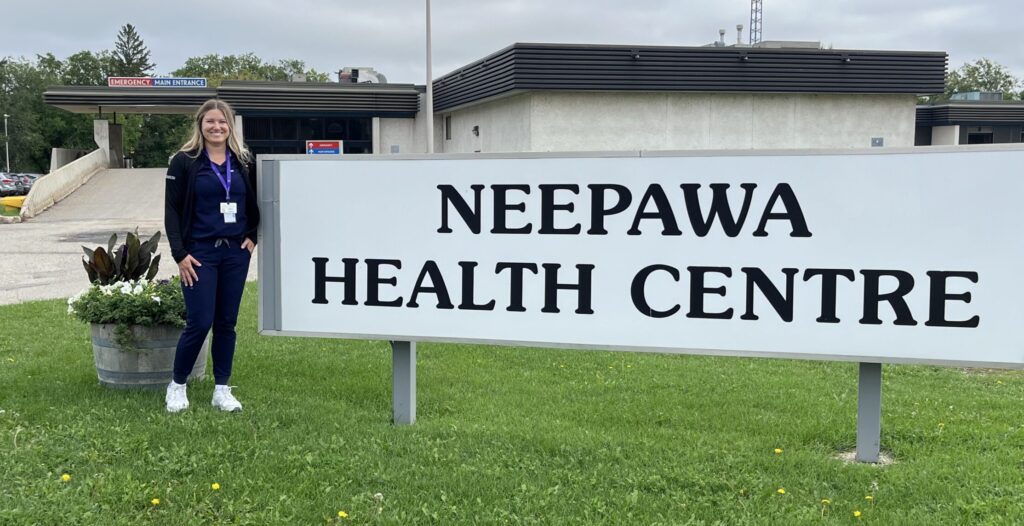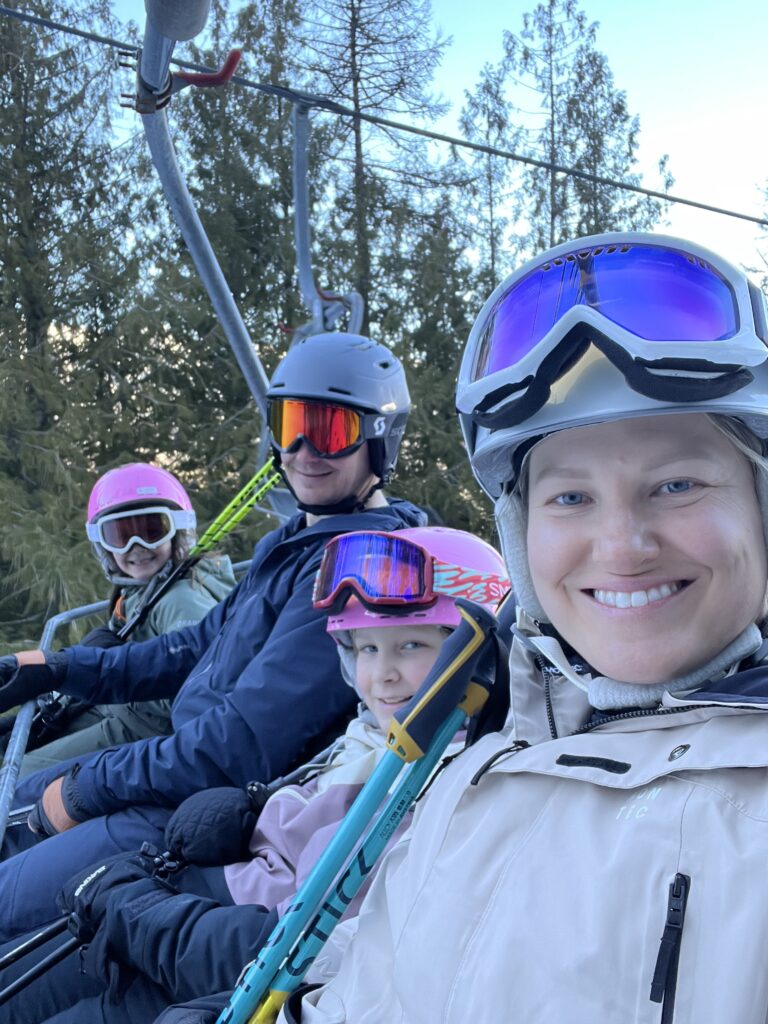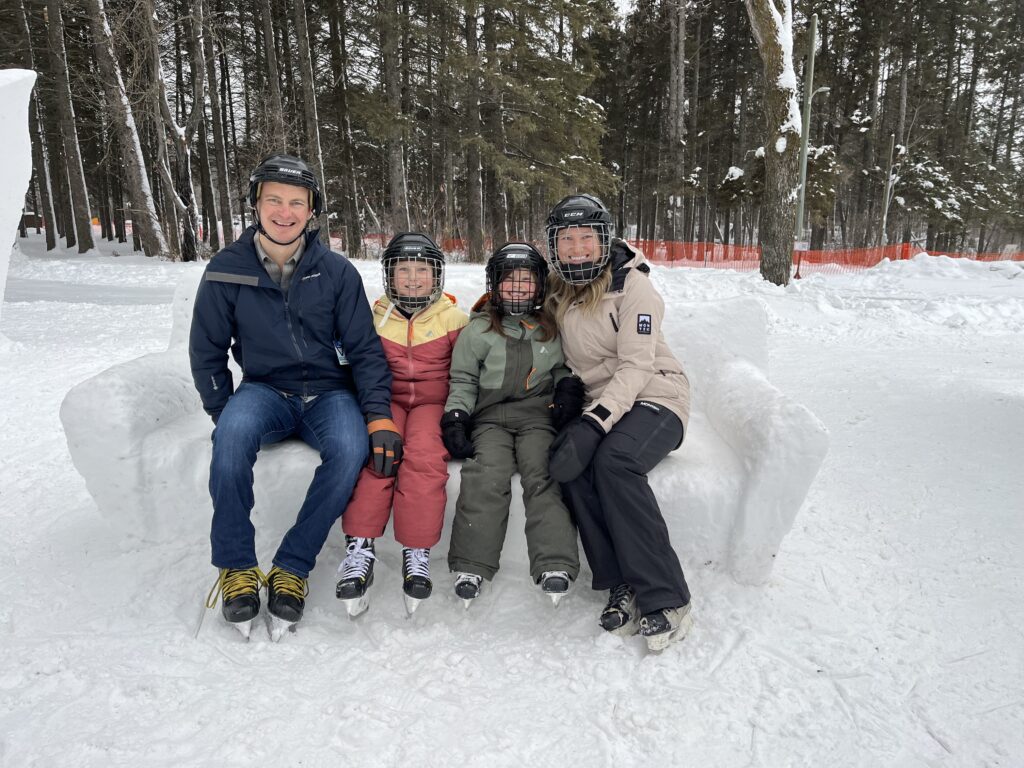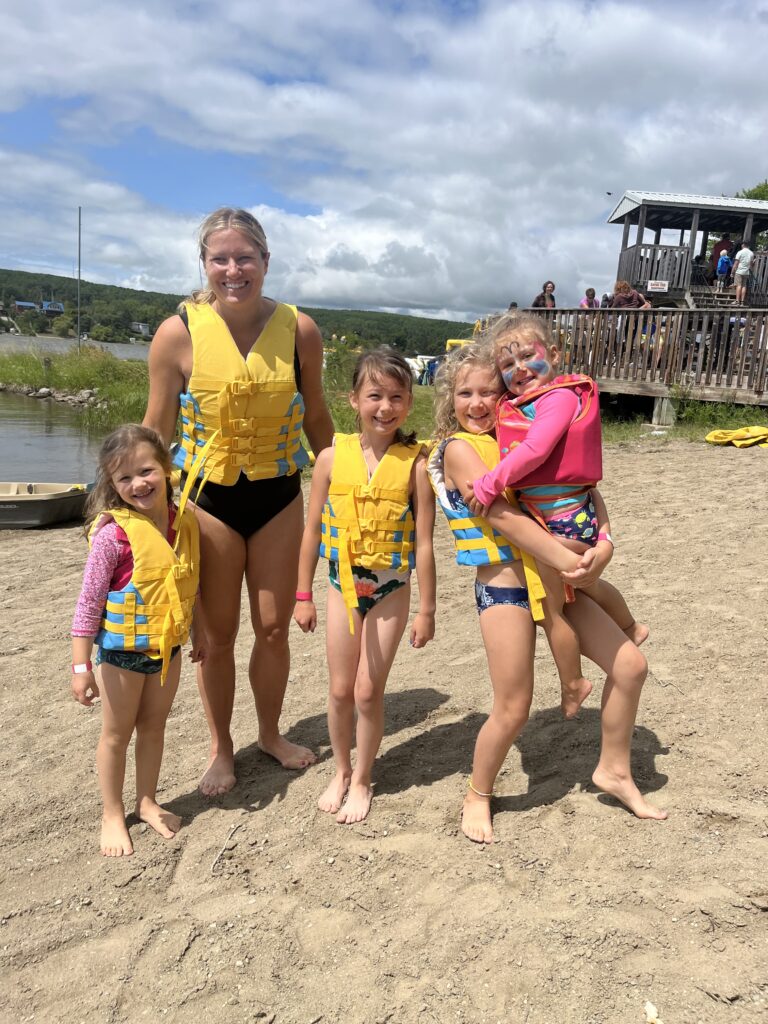Growing up in rural Manitoba, Brandi always knew she wanted to work in the medical field. Her interest was officially sparked during high school, when she job shadowed in the diagnostic imaging department at Neepawa Health Centre.
“I loved the structured schedule and the variety in scans. It was a career I could really see myself doing,” she says.
Today, Brandi is the Senior Sonographer at Neepawa Health Centre, where she’s worked for 11 years. With 15 years in healthcare overall, she has built a career defined by precision, compassion, and deep connection to her patients and community. She says ultrasound is much more than a diagnostic tool; it’s often the first step in a patient’s health journey.
“Ultrasound is a safe, relatively inexpensive, high-quality diagnostic imaging test. A scan’s early detection of abnormalities can result in quicker care plans and be the difference between life and death.”
A typical day for Brandi starts with a 30-minute commute to Neepawa, where she codes and prioritizes requisitions, ensuring emergency and inpatient requests are handled promptly. She scans 10–11 patients a day, ranging from infants to the elderly, and performs everything from abdominal and obstetrical scans to carotid and thyroid imaging.
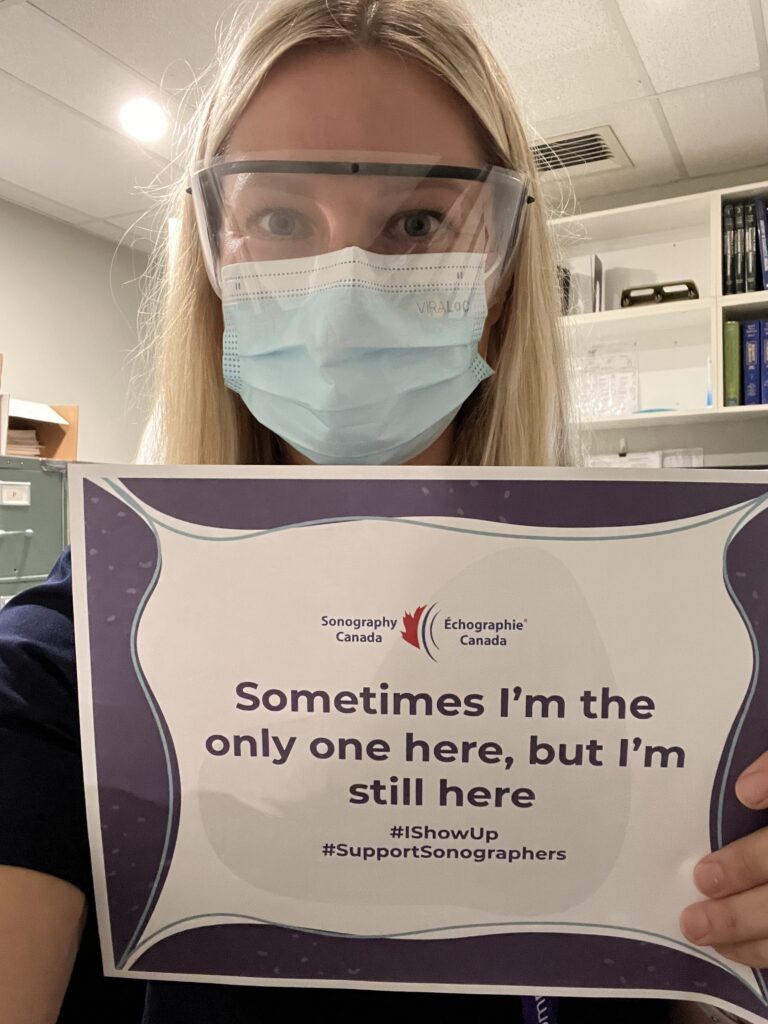
As the department’s Senior Sonographer, Brandi also handles ordering supplies, equipment maintenance, and policy implementation; essentially the ins and outs of running a rural ultrasound department. She’s in constant communication with radiologists in Brandon, who help to ensure patients receive the right diagnostic tests.
“We are highly trained diagnostic medical professionals, trained to search for clues that answer your doctor’s clinical questions,” Brandi says. “We see things no one else can, things that are often complicated or weigh heavy on our hearts. We are usually overbooked and push the limits of time every single day.”
Over the years, countless experiences have reaffirmed Brandi’s choice to become a sonographer. She’s identified ectopic pregnancies in C-section scar tissue, cancerous renal masses, and acute appendicitis in children, each case emphasizing the critical role ultrasound plays in diagnosis and care. Brandi says working in a small community makes her work feel even more impactful.
“Seeing kids healthy and out in the community, it makes me so proud to have been a small part of the team of medical professionals that helped bring these babies safely into the world.”
Challenges
For all the rewarding moments, Brandi acknowledges that her work is demanding, both physically and emotionally. When patients expect answers immediately after a scan, a sonographer must maintain compassion and professionalism while educating clients about how and when they receive their results.
Ultrasound is physically demanding, especially as workloads increase, putting sonographers at a higher risk of repetitive strain injury. Brandi says she focuses on strength training to reduce her risk of injury, working with a family physician, physiotherapist, massage therapist, and a social worker to help manage her physical and mental health.
“An increase in ordering ultrasounds has created a significant strain on our already heavy workloads. We are seeing more requests for double exams, as the clinical question hasn’t been narrowed down yet.”
Systemically, she believes Manitoba needs to shift towards a proactive approach to reduce wait times for diagnostic scans.
“We need to look at the why behind these wait-times. Either you increase staffing to accommodate all the requisitions coming in, or you look to manage the vast number of requisitions.”
Brandi suggests proactive strategies such as:
- A centralized requisition intake within Prairie Mountain Health Region to reduce the number of duplicate orders being processed at each ultrasound site;
- An education campaign for health providers on identifying and requisitioning the most appropriate test for a patient’s needs; and
- Modern, automated appointment reminders to improve efficiency and patient preparedness.
“The current workforce cannot sustain the demand. Our province is at risk of losing more sonographers due to repetitive strain injury and burnout if we don’t start making some changes.”
When Brandi’s not at work, she’s busy keeping up with life on the farm with her husband and two daughters. Biking, swimming, snowshoeing, cross-country skiing, and downhill skiing are just some of her family’s favourite activities. She also plays soccer and hockey, and this year, she’s taken on the role of assistant coach for both her daughters’ hockey teams.
Brandi’s commitment to community runs deep, serving as a board member with the Minnedosa Primary Care Centre for over a decade, as well as volunteering on the board of the Minnedosa Community Child Care Centre for six years.
Above all, Brandi is passionate about equality in healthcare and hopes to see more standardization and consistency in diagnostic services in the future.

